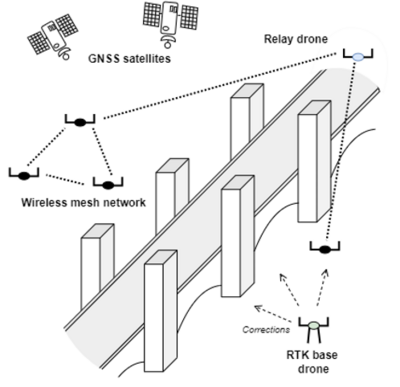
We are witnessing an increasing uptake of robot systems in civil and military applications in our society. Drones are today readily deployed for agriculture, structural health monitoring, and inspection of civil infrastructure as they provide a large cost-saving potential. However, practical operation with drones is often inhibited by insufficient communication and navigation support in the environment due to limited network coverage, interference, noise, and poor GNSS signal quality existing near buildings, bridge structures, railways, tunnels, etc. We label such environments as “inhibited” environments. Project objectives: The goal of the ROSIE project is to build and demonstrate a resilient, cooperative drone swarm for inspections. The project focuses on autonomous drone operation in environments with only sporadic support from public communication infrastructure and accurate satellite-based navigation. Topics addressed by ROSIE:
Contact: If you are interested to learn more about ROSIE you an contact the project coordinator: Rune Hylsberg Jacobsen. |